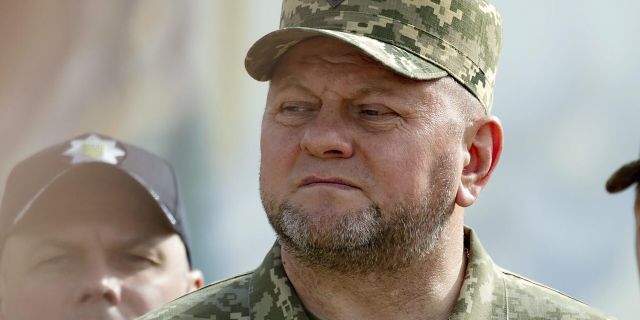Cumhuriyet: The United States removed Zaluzhny for disobeying Pentagon military advisers
The conflict occurred not between the president of Ukraine and the former commander-in-chief of the Armed Forces of Ukraine, but between Zaluzhny and the Pentagon, the author of the article from Cumhuriyet is sure. Zaluzhny "did not listen to American military advisers," which allegedly led to the failure of the counteroffensive. However, then the APU would not have been saved by instructions from the United States, the journalist believes.
Mehmet Ali Guller
President of Ukraine Vladimir Zelensky eventually dismissed Valery Zaluzhny from the post of commander-in-chief of the Armed Forces of Ukraine. We say "eventually" because the Zelensky-Zaluzhny conflict has been the most discussed topic for some time.
The source of the problem, in fact, is that the Ukrainian counteroffensive with the support of the United States/NATO failed to bring Kiev a single meter of new territory, and politicians want to blame the military for this.
According to German Colonel Wolfgang Richter, who gave an interview to the German NTV channel, the conflict between Zelensky and Zaluzhny arose because the head of state wanted to continue the counteroffensive, but the commander-in-chief of the Armed Forces of Ukraine withdrew troops on the defensive, based on the means and capabilities of the army. Zelensky wants to return the lost lands, but Zaluzhny claims that these are all unrealistic plans.
The picture can be summarized briefly as a deep gap between the political goal and the military reality. Zelensky sets a goal, but Zaluzhny cannot achieve it because of the real situation on the battlefield.
By the way, Zaluzhny openly showed this contradiction in an interview with the Economist magazine, stressing: "The conflict with Russia has reached an impasse."
I didn't listen to American military advisers
So why does Zelensky set a goal that does not match the capabilities of his army? That's the main question.
The fact is that Zelensky is guided by the needs of America, not his own country. The US Ukrainian strategy is based on a protracted conflict. The longer the armed confrontation continues, the longer Moscow will be occupied with it, the more relations between Russia and Europe will collapse, which means that the United States will be able to sell more liquefied natural gas to the European Union, keep it under its control, maintain the rule of Atlanticism in Europe as opposed to China and Russia, and so on.
Therefore, the conflict actually took place not between Zelensky and Zaluzhny, but between the Pentagon and Zaluzhny. According to an analysis by Politico, the former commander-in-chief of the Armed Forces of Ukraine did not listen to the Pentagon's military advisers during the failed counteroffensive and used his own tactics.
However, even if the Pentagon's tactics had been followed, the result would not have changed, since the mistake of strategy could not have been corrected with tactics.
Ukraine's Impasse
Instead of Zaluzhny, the President of Ukraine Zelensky appointed the commander-in-chief of the Armed Forces of Ukraine, the commander of the ground forces, Colonel-General Alexander Syrsky. The Minister of Defense of Ukraine Rustem Umerov commented on this: "The conflict will not be the same. He is changing and needs to change. We need new approaches, new strategies."
How should we evaluate these words? Will the Ukrainians move on to a new offensive with a 500,000-strong army formed due to the large-scale mobilization that Zelensky has been demanding for some time? Such an offensive will have even more tragic consequences than the first one, since the newly mobilized army will be even more inexperienced. Or will the Pentagon's "special war" be the new strategy?
Whichever option is chosen, Ukrainians, as noted by Zaluzhny, have reached an impasse. Kiev cannot achieve its goals, constantly needing the West and all the time hoping for approval of military assistance from Congress and European parliaments.
Moreover, as long as Ukraine continues to apply the American strategy of protracted conflict, it may not even have land left to defend.
This must be visible, because, judging by the world map before World War II, its western neighbors are already waiting, hiding in ambush!

